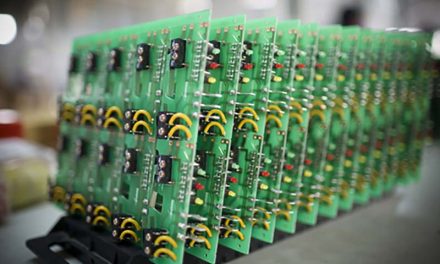Microtronic Announces New Informational Tech Bulletin Series on Optimizing Semiconductor Macro Defect Wafer Inspection
Hawthorne, NY – Microtronic, Inc., a maker of high-speed full-wafer semiconductor macro defect inspection systems, wants to shed new light on a topic that is frequently misunderstood in the industry: macro vs. micro inspection. The company is releasing a new series of free informational tech bulletins entitled Macro Intelligence, addressing the often-underutilized capabilities of macro defect wafer inspection and how fabs can best use them to improve their total wafer defect management. Anyone may request to receive the new bulletins.
“In today’s fabs we still see confusion about the relative roles of macro and micro wafer inspection,” said Reiner Fenske, Microtronic’s CEO. “Many people still think that macro and micro are basically trying to do the same job, when actually they’re doing two very differentjobs — each very important and each complementary to the other.”
“Here’s the fundamental challenge,” said Fenske. “As critical dimensions and killer defects get smaller, micro inspection requires ever increasing magnification and resolution — and longer inspection times. Which is why micro inspections are usually limited to just a small part of the semiconductor wafer and on a small sampling of wafers, perhaps only one or two from a lot. Unfortunately, that leaves a great deal of wafer real estate uninspected!”
“And that’s the big void that automated macro wafer inspection can fill,” said Errol Akomer, Applications Director at Microtronic. “Today’s generation of ultra high-speed semiconductor macro defect wafer inspection systems, such as our EagleView, can now capture full-wafer, high-resolution images of every wafer in the lot within a few minutes, without needing recipes. So fabs can now do 100% macro defect wafer inspections after many more process steps, to catch defects that otherwise would have been missed — random defects, intermittent process or tool issues and a great deal more.”
Akomer noted that automated macro inspection not only detects more defects, it also records wafer images and defect information in a database that can be reviewed long after the wafers have shipped. This database can supply extremely valuable information to each subsequent processing step and inspection, and it provides a way to find root causes of infrequent issues and excursions. And, importantly, it can also integrate defect data from manual microscopic as well as automated micro inspections — to become an extremely valuable resource for end-of-line inspection. This can significantly improve the quality and completeness of final inspections and reduce the number of hidden defects that escape into the field.
The first of the new Macro Intelligence e-bulletins dealt with the issue of “disappearing” latent defects that can get covered over by subsequent processing steps and become difficult to detect at later inspections. The second bulletin discussed the problem of partially compromised die that can slip through final electrical testing and become reliability problems in the field.
“Bottom line, these new e-mail tech bulletins aim to provide useful information,” said Akomer. “They’re about helping fabs to optimize their defect inspection protocols and improve yields. Each e-bulletin is intentionally brief, to the point, and a quick read. So far, people are telling us they like them!”
To receive the free tech bulletins
Anyone wishing to receive the new free Macro Intelligence bulletins may simply e-mail their request to info@microtronic.com. Or sign up online at www.microtronic.com/contact-us/
About Microtronic
Founded in 1994 and headquartered in Hawthorne, NY, Microtronic designs, builds and delivers class-leading systems and software for semiconductor wafer automated macro defect inspection as well as wafer sorting and metrology solutions. Because of its exceptionally high speed, the EagleView 5 is able to automatically macro-inspect 100% of every wafer in the lot. It produces and stores high-resolution full-wafer color images, with macro defects identified and categorized in a defect management system that can inform all subsequent processing steps and inspections. This database can also integrate the information from additional microscopic and automated micro inspections. For further information, visit www.microtronic.com











